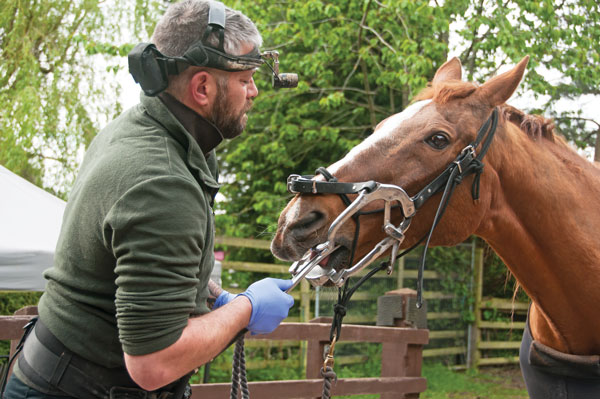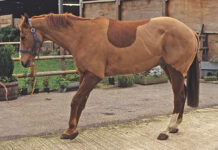
February is National Equine Dental Health Month, so Jeff Hall, DVM, with Equine Technical Services at Zoetis recently hosted a webinar to share some survey findings that could help horse owners keep their horses’ dental health in peak condition.
Tooth Abscess Pain
Hall discussed a paper published in the June 2019 Journal of Equine Veterinary Science (“Behavioral Signs Associated With Equine Periapical Infection in Cheek Teeth”) that hypothesized that removing an abscessed tooth would reduce or eliminate behavior problems, since pain affects behavior.
◆ In the study, 86% of horses that had abscessed teeth removed showed reduced behavioral signs, while 50% showed a complete elimination of these signs.
◆ 88% showed fewer bit-related behavior signs, and 38% no longer saw any bit-related behavior signs after the abscessed tooth was removed.
Owner Survey
According to a 2020 equine dental wellness survey conducted by Zoetis of 4,500 horse owners, 73% of owners had horses with signs of dental pain, and 22% of their horses had not had a dental exam in more than one year.
What constitutes “signs of dental pain?” Some examples of dental pain signs from the survey include: problems with eating and drinking, eating hay slowly, dropping hay, evading the bit, a difference between right and left rein contact, withdrawn or asocial behavior, and head-shyness.
Recommended Dental Care
The American Association of Equine Practitioners (AAEP) recommends an annual dental exam for most horses, although age and performance level may indicate more frequent exams.
A dental exam takes approximately 10 to 30 minutes and assesses internal and external structures. It requires sedation and a full-mouth speculum for safety.
The cost of a basic dental exam depends on your vet and location but ranges from $35-$100. Some vets don’t charge for the exam, but instead roll the cost into any procedures needed to correct abnormalities.
It’s much easier to invest in an exam to treat and resolve issues by finding them early on. This will reduce your vet costs in the long run.
As an important note, the AAEP recommends that only licensed vets do dental exams and procedures for safety reasons. Equine veterinarians are trained in anatomy, sedation and dental procedures in vet school, some also receive more advanced training beyond vet school.
If you do use a lay dentist (one without a veterinary degree), Hall recommends at the very least having a vet present. While some lay dentists are skilled and do a good job, they should maintain a close partnership with a veterinarian in case a difficult situation arises.
Dental Health Year-Round
It’s ideal to spread out your horse’s feedings for many reasons, such as lowering his stress level and keeping his gut moving. Grazing (in a pasture or on hay) all day as nature intended also helps with proper chewing and tooth wear, thus preserving equine dental health.
If your horse is experiencing any unusual behavior problems, such as those mentioned above, consider having your veterinarian out for a dental exam to see if tooth pain could be the root cause of the issue.






